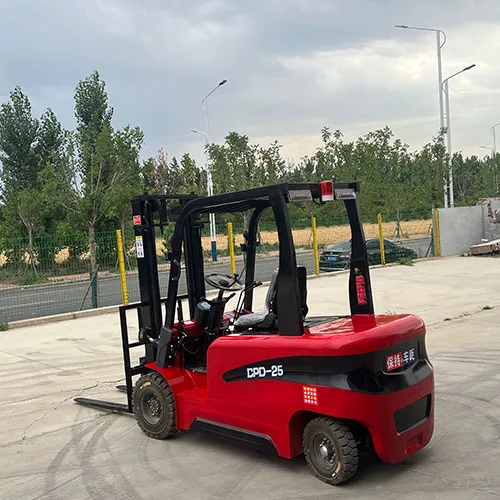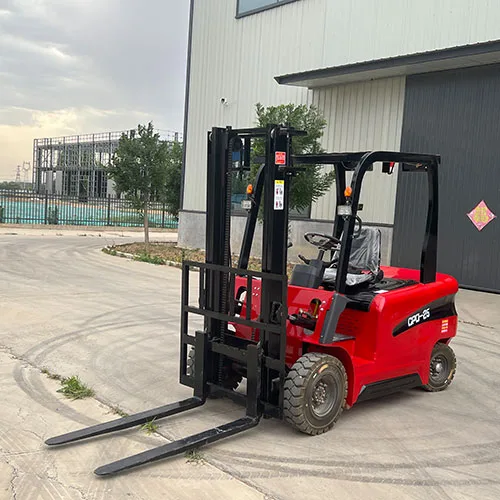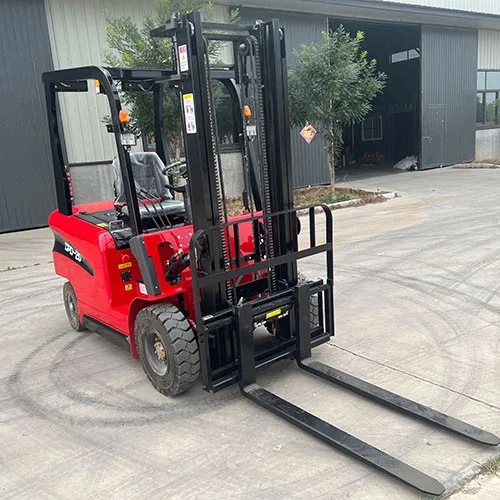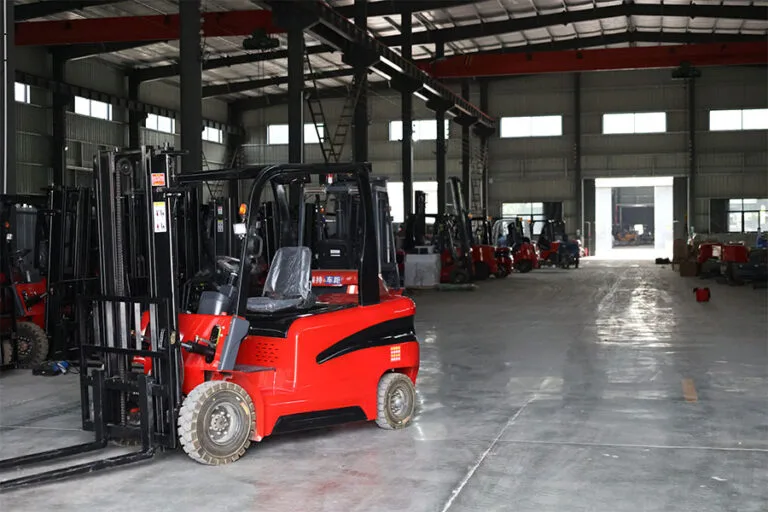I’m thrilled to have you here! Before we dive into the content, let’s stay connected. Join me on my social media platforms for more insights, community engagement, and regular updates. Here’s where you can find me:
📌 Facebook: Shandong Huaying International Trade Co., Ltd.
Now, let’s embark on this journey together. I hope you find the content here not only insightful and engaging but also valuable to your interests. Let’s learn, grow, and connect!
Table of Contents
Introduction


Choosing the right electric forklift dealership is a critical decision that can significantly impact your business operations. With the increasing demand for electric forklifts due to their environmental benefits and operational efficiency, it’s essential to partner with a dealership that understands your specific needs and offers reliable support. This comprehensive guide presents ten vital questions to ask any electric forklift dealership, ensuring you make an informed and confident decision.
1. What Is Your Experience with Electric Forklifts?
Understanding a electric forklift dealership’s experience with electric forklifts is one of the most important steps in your purchasing journey. Before committing to any dealer, it’s essential to ask how long they have been involved in the electric forklift industry. An established electric forklift dealership with several years of experience will likely have a better understanding of how these machines operate, what types of challenges may arise, and how to recommend the right model based on your specific business needs.
An experienced electric forklift dealership will also be well-versed in the nuances of electric-powered machinery, including different battery technologies such as lithium-ion and lead-acid, as well as energy-efficient charging systems. They will have encountered various maintenance scenarios and will be able to provide insights into preventative care and performance optimization. Their familiarity with a wide range of brands and models also ensures they can give you balanced and informed recommendations—not just sell you what they have in stock. Always prioritize working with an electric forklift dealership that can demonstrate a strong, proven track record in the electric forklift space.
2. Do You Offer a Range of Electric Forklift Brands and Models?
When evaluating a potential electric forklift dealership, it’s essential to look at the variety of equipment they offer. A reliable dealership should have access to a wide range of electric forklift brands and models to accommodate different operational requirements. Whether your business operates in narrow warehouse aisles or expansive outdoor yards, the ability to compare and contrast multiple options is crucial for making the best investment.
A trustworthy electric forklift dealership won’t push you toward a one-size-fits-all solution. Instead, they should be able to provide technical specs, performance comparisons, and side-by-side analysis of models with varying lift capacities, turning radii, load heights, and safety features. This helps you make a confident and well-informed choice tailored to your specific use case. Moreover, a broad inventory indicates that the electric forklift dealership has strong supplier relationships and can offer newer, more innovative technologies as they become available. In short, diversity in product selection is a key indicator of a professional and customer-focused electric forklift dealership.
3. What Are the Financing and Leasing Options Available?
Purchasing an electric forklift outright can be a significant investment for any business, particularly small to mid-sized operations. That’s why it’s important to ask each electric forklift dealership about the range of financing and leasing solutions they offer. Flexible financial arrangements can make a huge difference in affordability and long-term value, especially if you’re planning to scale or upgrade your fleet in the near future.
A well-established electric forklift dealership should provide multiple options such as lease-to-own plans, seasonal payment structures, and low-interest financing. These alternatives enable you to acquire top-quality electric forklifts without placing undue stress on your capital reserves. In addition, the electric forklift dealership should be transparent about credit approval requirements, monthly repayment terms, and any hidden fees. Some dealerships may even partner with third-party lenders or provide in-house financing, giving you additional flexibility.
When a electric forklift dealership is willing to work with your financial goals, it signals a long-term commitment to client success. The availability of budget-conscious plans allows more businesses to access clean, efficient, and modern electric forklift technology.
4. How Do You Support Maintenance and Repairs?
A reliable electric forklift dealership doesn’t just stop at selling you a machine—they should provide robust after-sales support that includes both preventive maintenance and emergency repair services. Electric forklifts, while generally more cost-effective and lower-maintenance than their internal combustion counterparts, still require periodic inspections and servicing to maintain peak performance.
Ask each electric forklift dealership about the specifics of their service offerings. Do they have in-house technicians or do they outsource maintenance tasks? What is their average response time for service calls? How well-stocked are they when it comes to critical spare parts, batteries, or replacement components? The answers to these questions will reveal how dependable the electric forklift dealership truly is when it comes to minimizing downtime and keeping your operations running smoothly.
Moreover, a quality electric forklift dealership may offer service packages, maintenance contracts, or on-site inspections as part of their customer care strategy. They might even provide digital tracking of service intervals, battery health monitoring, or remote diagnostic support. Choosing a dealership that prioritizes ongoing support is essential for reducing unexpected repair costs and maximizing the return on your equipment investment.
5. Can You Provide Training for Our Operators?


When purchasing from an electric forklift dealership, one often overlooked yet critical question is whether they offer training programs for operators. Safe and efficient operation of electric forklifts isn’t just about knowing how to drive — it requires proper instruction on load handling, maneuvering in tight spaces, understanding dashboard indicators, and responding to technical issues.
A responsible electric forklift dealership will typically provide either on-site training or access to certified online modules. Some go even further by offering in-depth sessions led by experienced professionals who cover not just operational basics, but also safety standards set by local regulations and organizations such as OSHA. This ensures that your team not only maximizes the utility of the forklift but also maintains a safe work environment.
Additionally, when an electric forklift dealership includes training as part of their service offering, it demonstrates their commitment to long-term client success. They aren’t just there to complete a sale—they’re invested in how the equipment is used post-purchase. Operator training can reduce workplace accidents, decrease repair costs due to misuse, and boost productivity. Be sure to confirm whether training certificates are issued, how often sessions can be renewed, and whether refresher courses are available through the electric forklift dealership in the future.
6. What Is the Warranty Coverage for Your Electric Forklifts?
Understanding the warranty coverage offered by an electric forklift dealership is crucial for protecting your investment. A quality warranty can save you thousands of dollars in repair or replacement costs over the lifetime of your equipment. Therefore, it’s essential to ask detailed questions about the duration, coverage scope, and claim process for every electric forklift model you are considering.
A transparent electric forklift dealership will clearly explain what components are covered under warranty—this could include the battery, motor, chassis, electronic systems, and more. They will also outline any exclusions or maintenance responsibilities that fall on the owner. For example, some warranties may be voided if routine service is not completed on schedule or by approved technicians.
Some electric forklift dealerships even offer extended warranties or service contracts, allowing you to prolong protection based on how intensively you plan to use the equipment. The best dealerships will also help you handle warranty claims efficiently by coordinating inspections, paperwork, and communication with the manufacturer. Before finalizing your purchase, make sure the electric forklift dealership provides all warranty terms in writing and is willing to review them with you point by point.
7. How Do You Handle Battery Maintenance and Replacement?
Batteries are the heart of electric forklifts, and their proper care is fundamental to machine performance and lifespan. That’s why it’s critical to ask how a electric forklift dealership manages battery maintenance and replacement services. A high-quality dealership should be equipped with the knowledge, tools, and inventory to support battery-related needs throughout the equipment’s life cycle.
Begin by asking about their standard procedures for battery inspection and upkeep. A reliable electric forklift dealership will provide clear guidance on optimal charging practices, how to avoid overcharging or deep discharge, and what signs to watch for in terms of battery wear and degradation. They may even recommend specific battery brands or technologies based on your usage pattern and climate conditions.
When a replacement is eventually needed, a professional electric forklift dealership will offer prompt service and carry a stock of high-quality batteries compatible with your model. Some dealerships even have recycling programs for old batteries, aligning with environmental regulations and best practices. Ultimately, working with a dealership that emphasizes battery health shows they are invested in your equipment’s long-term reliability—not just short-term sales.
8. Do You Offer Customization Options?
One of the most valuable services a electric forklift dealership can provide is the ability to tailor equipment to your unique business requirements. Not every operation needs the same lift height, load capacity, or attachments, and a forward-thinking dealership understands this.
Ask if the electric forklift dealership offers customization options such as specialized forks, enhanced lighting, ergonomic seating, protective overhead guards, and integrated technologies like telematics or fleet management software. Some businesses may even require environmental customizations for cold storage, high-dust areas, or uneven terrain. A capable dealership should be able to modify configurations or source factory options based on your workflow.
In addition, a knowledgeable electric forklift dealership will not only perform the modifications but also advise you on which features truly add value versus those that may be unnecessary. Customizing your electric forklift ensures a better fit with your operational environment and increases operator satisfaction and efficiency. Always prioritize dealerships that can work with manufacturers or in-house technicians to offer these flexible, performance-enhancing solutions.
9. What Are the Delivery and Setup Processes?
When choosing an electric forklift dealership, it’s important not to overlook the delivery and setup processes. Even the most advanced electric forklift won’t add value if it arrives late or isn’t installed properly. That’s why asking detailed questions about logistics is essential for planning a smooth transition into your workflow.
Start by discussing delivery lead times. A dependable electric forklift dealership should provide you with realistic, clearly communicated timelines based on your order specifications and inventory availability. If the dealership has a strong logistics system in place, they should also be able to offer tracking, updates, and estimated arrival windows to keep your team informed throughout the process.
Equally important is the setup service. A reputable electric forklift dealership will ensure that the equipment is ready for immediate use upon arrival. This includes battery charging, systems calibration, installation of any requested accessories, and a basic operational walkthrough. Some dealerships even offer a final inspection or safety checklist before handing the machine over to you.
Ask if the electric forklift dealership charges extra for delivery and setup or includes it as part of the purchase package. Also, clarify whether delivery is handled by in-house teams or third-party carriers. Reliable dealerships take full responsibility for any damages during transit and will quickly resolve issues that arise. By confirming these logistics in advance, you avoid unpleasant surprises and ensure that your new electric forklifts integrate seamlessly into your operations.
10. Can You Provide References from Previous Clients?

One of the most telling indicators of a trustworthy electric forklift dealership is their track record with previous clients. While sales pitches and promotional materials are helpful, nothing speaks louder than firsthand feedback from other businesses that have worked with the dealership. Always ask for references or case studies that reflect the dealership’s capabilities and service quality.
A confident electric forklift dealership should be willing and able to provide you with a list of satisfied customers in similar industries or business sizes. When contacting these references, focus on specific aspects of their experience—such as response times, equipment reliability, training quality, and after-sales support. These insights can help you validate the dealership’s promises and avoid hidden pitfalls.
In some cases, an electric forklift dealership may even host client testimonials or video reviews on their website or social media platforms. Look for patterns in the feedback: consistent praise for service responsiveness, clear communication, and long-term support are positive signs. Conversely, frequent complaints about delays, poor-quality equipment, or lack of follow-up service should raise red flags.
Requesting and evaluating references not only helps you make a more informed decision but also signals to the dealership that you are a serious buyer who values transparency and professionalism. Choosing an electric forklift dealership with a strong history of customer satisfaction ensures you’re partnering with a provider who truly understands the importance of long-term business relationships.
Comparison Table: Key Considerations When Choosing an Electric Forklift Dealership
| Consideration | Importance | Questions to Ask |
|---|---|---|
| Experience | Ensures knowledgeable support and guidance | How long have you been dealing with electric forklifts? |
| Product Range | Offers options to meet specific operational needs | What brands and models do you offer? |
| Financing Options | Facilitates budget-friendly acquisition | What financing or leasing plans are available? |
| Maintenance Support | Minimizes downtime and extends equipment lifespan | What maintenance and repair services do you provide? |
| Operator Training | Promotes safety and efficiency | Do you offer training programs for forklift operators? |
| Warranty Coverage | Protects against unforeseen expenses | What does your warranty cover, and for how long? |
| Battery Services | Ensures optimal performance and longevity | How do you handle battery maintenance and replacements? |
| Customization Capabilities | Aligns equipment with specific business requirements | Can you customize forklifts to suit our operational needs? |
| Delivery and Setup | Enables quick and efficient deployment | What is your delivery timeline, and do you handle setup? |
| Client References | Provides insights into dealership reliability | Can you provide references from previous clients? |
Conclusion
Selecting the right electric forklift dealership involves careful consideration of various factors, from experience and product range to support services and client satisfaction. By asking these ten critical questions, you can identify a dealership that aligns with your operational needs and offers reliable, long-term support. A trustworthy dealership not only provides quality equipment but also contributes to the overall efficiency and success of your business.
FAQ
Q: Why is it important to choose a dealership experienced with electric forklifts?
A: An experienced dealership understands the specific requirements and technologies associated with electric forklifts, ensuring better support and guidance.
Q: What should I look for in warranty coverage?
A: Look for comprehensive coverage that includes major components and offers a reasonable duration, reflecting the dealership’s confidence in their products.
Q: How does operator training benefit my business?
A: Proper training enhances safety, reduces the risk of accidents, and ensures efficient operation, leading to increased productivity.
Q: Can customization options significantly impact operations?
A: Yes, tailored modifications can improve workflow efficiency and adapt equipment to specific tasks, enhancing overall performance.
Q: Why are client references valuable?
A: References provide firsthand accounts of the dealership’s service quality and reliability, helping you make an informed decision.



